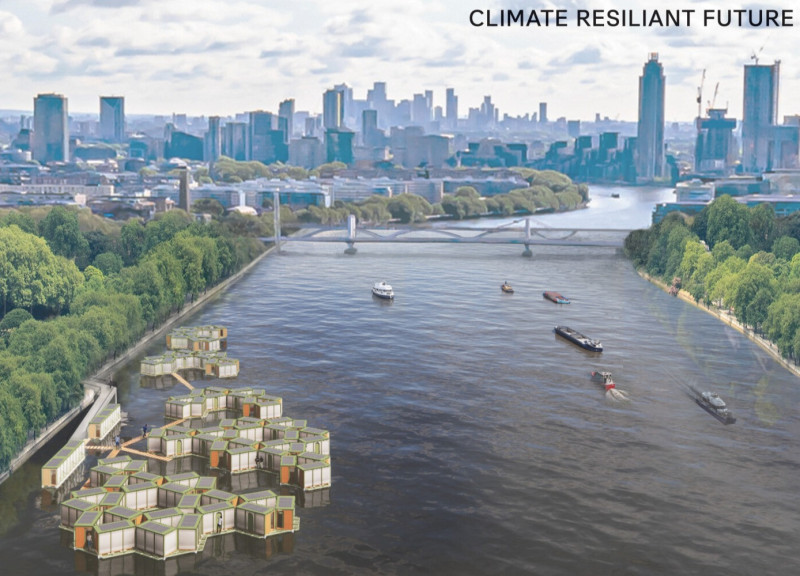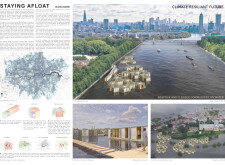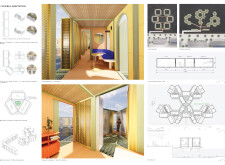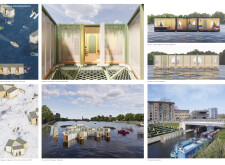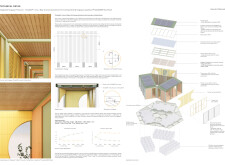5 key facts about this project
## Overview
The "Staying Afloat" project is situated along the River Thames in London, UK, and addresses the increasing challenges of urban flooding associated with climate change. It proposes a series of floating microhomes that not only aim to meet housing needs but also foster resilience and community connectivity amidst changing environmental conditions.
## Design Approach
### Modular and Flexible Spatial Configuration
The microhomes are designed using modular units, which allows for efficient construction and adaptability according to the inhabitants' requirements. The design supports various configurations—linear, triangular, and circular—enabling user-defined spatial utilization for varying seasonal activities and community interactions. This flexibility in design promotes an adaptable living environment while ensuring that residents can respond effectively to their dynamic needs.
### Environmental Integration and Sustainability
The project maintains a strong connection with its aquatic surroundings, emphasizing the use of eco-friendly materials and renewable energy sources. Construction materials, such as sustainable timber panels and energy-efficient solar panels, support an environmentally responsible approach. Additionally, the design includes outdoor spaces for communal gardening and recreation, enhancing both residents' well-being and social engagement. Central to the design philosophy is the creation of community hubs that encourage social interaction and resource sharing, reinforcing community ties in a resilient, supportive environment.
### Material Selection
Materials chosen for the project include Tolidtek® vLine acoustic ceiling panels for sound absorption, Kingspan QuadCore® insulated roof panels for thermal efficiency, and recycled translucent wall panels that optimize natural light while preserving privacy. A lightweight steel support frame ensures structural integrity for the floating homes, while concrete foundation components provide stability. The combination of these materials not only enhances durability but also aligns with the sustainability goals of the project.


